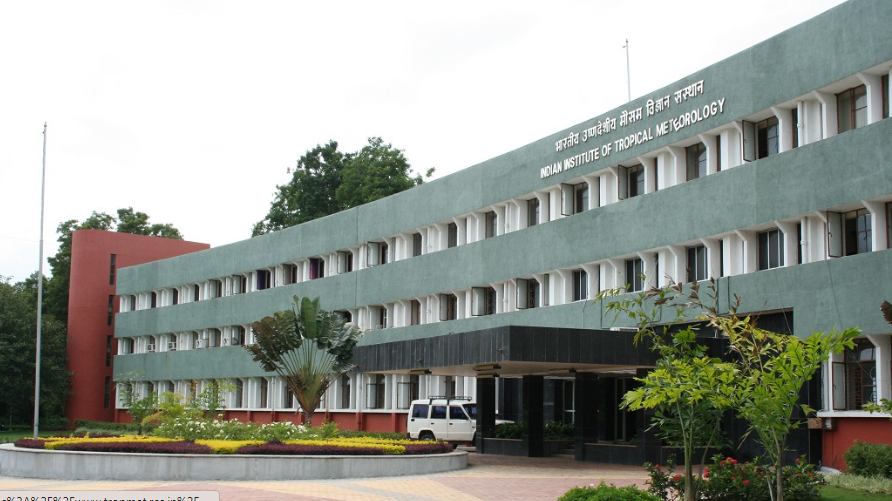Indian Institute of Tropical Meteorology
The Indian Institute of Tropical Meteorology (IITM) is a premier research institute in India, dedicated to the study of atmospheric and climate sciences. Established in 1962, it operates under the Ministry of Earth Sciences, Government of India, and is headquartered in Pune, Maharashtra.
History
The IITM was founded in 1962 as the Institute of Tropical Meteorology, under the India Meteorological Department (IMD). In 1971, it was renamed the Indian Institute of Tropical Meteorology and became an autonomous body under the Ministry of Earth Sciences (formerly the Department of Science and Technology).
Over the years, the institute has grown to become a leading center for atmospheric and climate research in India, with a focus on understanding the complex interactions between the atmosphere, oceans, and land surfaces in the tropics.
Research Areas
The IITM conducts research in various areas of atmospheric and climate sciences, including:
- Monsoon Studies: The institute is renowned for its research on the Indian monsoon, its variability, and its impact on the region’s weather and climate. It has developed several models to predict monsoon behavior and has contributed significantly to the understanding of monsoon dynamics.
- Climate Change: The IITM studies the causes and consequences of climate change, with a focus on its impact on the Indian subcontinent. It conducts research on climate modeling, climate variability, and the effects of climate change on agriculture, water resources, and human health.
- Air Pollution: The institute investigates the sources, transport, and impacts of air pollutants in India, particularly in urban areas. It has developed air quality models and conducts field studies to monitor and assess air pollution levels.
- Cloud Physics and Weather Modification: The IITM studies the physics of clouds and precipitation processes, as well as explores the possibilities of weather modification through cloud seeding and other techniques.
- Paleoclimatology: The institute conducts research on past climates using various proxy records, such as tree rings, ice cores, and lake sediments, to understand long-term climate variability and its drivers.
Facilities and Infrastructure
The IITM has state-of-the-art facilities and infrastructure to support its research activities, including:
- High-Performance Computing (HPC) Facility: The institute has a dedicated HPC facility, named “Pratyush,” which is one of the most powerful supercomputers in India. It is used for running complex climate models and processing large volumes of data.
- Observational Networks: The IITM maintains several observational networks, such as the Automatic Weather Stations (AWS), Agrometeorological Towers, and Flux Towers, to collect real-time weather and climate data from across the country.
- Radar and Satellite Meteorology: The institute has advanced radar and satellite facilities to study atmospheric processes and monitor weather systems. It operates a dual-polarization Doppler weather radar and receives data from various Indian and international satellites.
- Laboratories: The IITM has well-equipped laboratories for conducting research in atmospheric chemistry, cloud physics, and instrumentation. These include the Aerosol and Trace Gases Laboratory, the Cloud Physics Laboratory, and the Instrumentation and Observational Techniques Laboratory.
Education and Training
The IITM offers educational and training programs in atmospheric and climate sciences, including:
- Ph.D. Program: The institute has a doctoral program in atmospheric and climate sciences, affiliated with the University of Pune. Students conduct research under the guidance of IITM scientists and faculty members.
- Training Programs: The IITM regularly organizes training programs, workshops, and summer schools for students, researchers, and professionals in the field of meteorology and climate science. These programs cover topics such as numerical weather prediction, climate modeling, and remote sensing.
Collaborations and Outreach
The IITM collaborates with various national and international institutions and organizations to promote research and knowledge sharing in atmospheric and climate sciences. Some of its key collaborations include:
- World Meteorological Organization (WMO): The IITM is a recognized Regional Training Centre (RTC) of the WMO and conducts training programs for meteorologists and climate scientists from India and neighboring countries.
- Ministry of Earth Sciences (MoES) Institutions: The institute works closely with other MoES institutions, such as the National Centre for Medium Range Weather Forecasting (NCMRWF), the Indian National Centre for Ocean Information Services (INCOIS), and the National Institute of Ocean Technology (NIOT), on various research projects and initiatives.
- International Research Programs: The IITM participates in several international research programs, such as the World Climate Research Programme (WCRP), the International Geosphere-Biosphere Programme (IGBP), and the Monsoon Asia Integrated Regional Study (MAIRS), to contribute to global efforts in understanding and addressing climate change.


